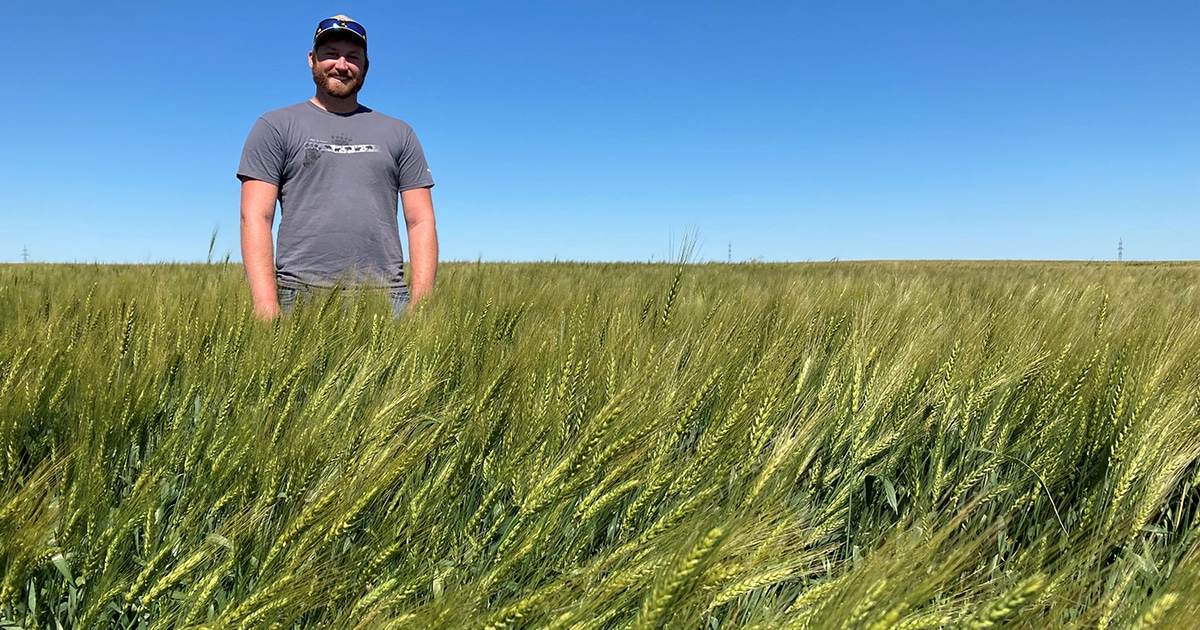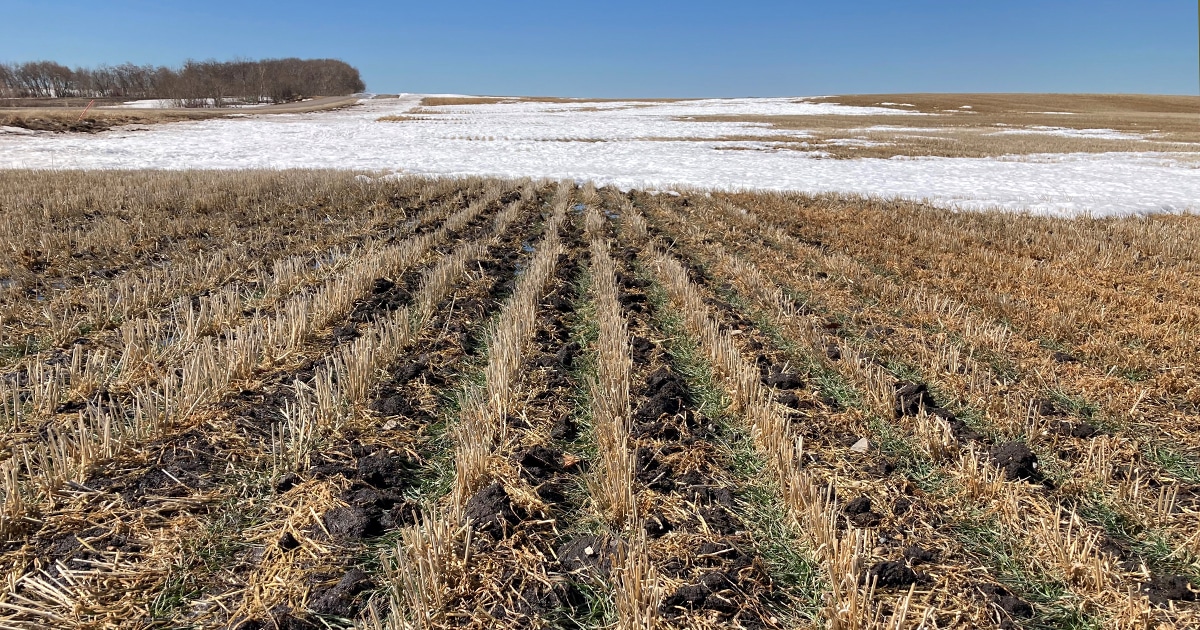Story
April 17, 2023
Duck-friendly winter wheat becomes a top cash crop in Manitoba
High yields + strong prices = extra profit for farmers
Stephane Lapointe has been growing winter wheat for over 20 years but the most recent harvest exceeded his expectations, in a big way.
“2022 was pretty much a record yield for us,” he says, as the April sun finally melts snow drifting across his land southwest of Neepawa. “With the help of DUC, Western Ag and proper soil sampling, we were able to produce an average of 97 bushels per acre with some zones pushing close to 120.”
High yields and strong prices are contributing to another surge in winter wheat production in Manitoba with 77,400 acres seeded last fall, up from 73,400 in 2022, 55,900 acres in 2021 and 32,000 acres in 2020. Producers are finding new varieties including Goldrush and Wildfire are top earners, even when prices are average.
Devil in the details
Manitoba Agriculture puts winter wheat in the middle when ranking the most profitable crops usually grown in the province. However, that rating is based upon an average yield of 66 bushels/acre and a selling price of $9.75/bushel. Last harvest, many producers were seeing 85 bu/ac yields and $12/bu prices.
“Winter wheat is the most profitable cereal crop for many farmers in our program,” says Alex Griffiths, winter wheat specialist at the Brandon office of Ducks Unlimited Canada (DUC). “In the past two years, half our growers have seen yields above 70 bu/ac. Prices have been strong and that has often made winter wheat their number one cash crop.”
As in previous years, DUC offers financial incentives to Manitoba farmers seeding winter wheat and on-farm agronomic support throughout the growing season. The program provides $20/acre up to $5,000, fertility advice from Western Ag – PRS CropCasting and full access to FarmLink’s grain marketing tool ‘GrainFox’.

Not just the money
Beyond profitability, winter wheat provides many environmental benefits. Experienced no-till winter wheat producers like the improved control of soil erosion and enhanced habitat for wildlife.
“Fall-seeded crops provide important nesting habitat for birds,” explains Griffiths, “because field operations are greatly reduced during spring nesting. Our research shows ducks nesting in winter wheat are 24 times more productive than ducks nesting in spring-sown cereals.”
What I love about winter wheat is the soil health. You’re seeding in the fall so you don’t need to roll over wet fields in the spring and compact the soil. It makes a difference having winter wheat in the ground already, especially with a wet spring.

Griffiths says farmers save time in the hectic spring season with fall planting and enjoy an early harvest. And because it’s out of the ground early, winter wheat has a natural competitive edge against weeds.
“We like to seed winter wheat into barley stubble,” explains Lapointe, who planted 1,000 acres last fall. He says the two cereals generally don’t host diseases dangerous to the other, although barley volunteers can be hard to control. “Don’t be afraid to try different varieties and find what works best on your farm,” he adds.
Interested in winter wheat?
Find out more at https://ag.ducks.ca/program/winter-wheat-mb/, or contact DUC’s Alex Griffiths at 204-848-0514 or a_griffiths@ducks.ca.
